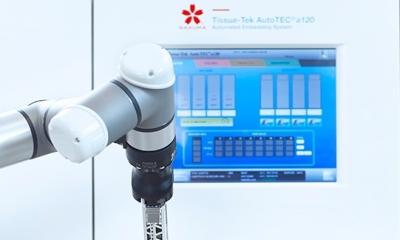© sudok1 – stock.adobe.com
News • Standardized assessment criteria
Lost in translation: ICU experts call for universal severity score
A new article advocates for the creation of a global scoring system to measure the severity of illness in ICU patients
Assessing the severity of illness in critically ill patients is a crucial task in Intensive Care Units (ICUs) worldwide. However, current systems are often based on local realities and can fail when applied to international contexts. An article published in the journal Critical Care Science, co-authored by researchers from the D'Or Institute for Research and Education (IDOR), argues that an international scoring system is urgently needed for intensive care medicine research and for the advancement of global public health.
Severity scores are clinical tools that compile data on a patient's health status to estimate their risk of death and guide medical decisions. They also help compare performance between ICUs, plan resources, and evaluate the results of clinical studies. For example, during the Covid-19 pandemic, these scores were widely used to describe patient profiles, assess the impact of treatments, and monitor the quality of care across different countries. However, most of these systems were developed based on populations in high or middle-income countries, which limits their usefulness in more diverse contexts. Factors like the prevalence of specific diseases, life expectancy, and the availability of lab tests vary significantly across different regions of the world. This creates major distortions when these scores are applied globally.
An international score provides a common language for describing illness severity in the context of international collaboration
Alexander Tracy, Jorge Ibrain Figueira Salluh, Eirik Alnes Buanes et al.
The article highlights that scores like SAPS III and APACHE IV, which are widely used in wealthy countries, may perform poorly in locations with less access to lab tests or different epidemiological realities. Additionally, many of these scores require clinical and laboratory variables that aren't available everywhere. This results in data gaps in low-income countries where ICUs are marked by a scarcity of resources. The problem is made worse by the lack of standardization in how this missing data is reported.
According to the authors, the answer lies in building a simplified international score based on a minimal dataset that is common to ICUs worldwide. This data must be easy to collect, available in routine clinical practice, and, ideally, independent of difficult-to-access technologies or tests.
The goal of creating a global system isn't to replace local scores, which will continue to be useful for national research and policies. "Instead, an international score provides a common language for describing illness severity in the context of international collaboration", the authors argue. This shared language for intensive care medicine would benefit not only science but also the management of public health crises like pandemics and natural disasters.
This standardization would make it easier to monitor the severity of infectious diseases and help predict the demand for ICU beds. It would also improve the representativeness of clinical studies since it would be possible to compare populations from different countries and reveal inequalities, generating data for the creation of more effective policies.
Source: D'Or Institute for Research and Education
21.11.2025





